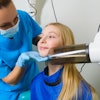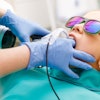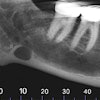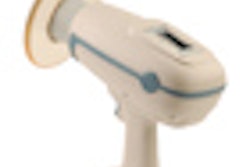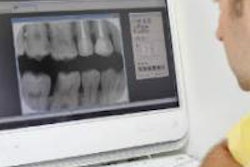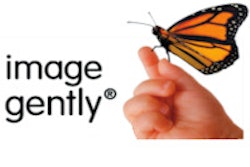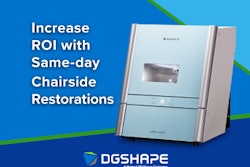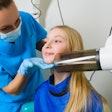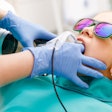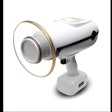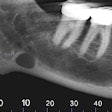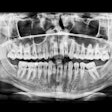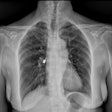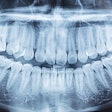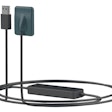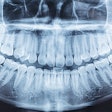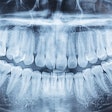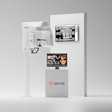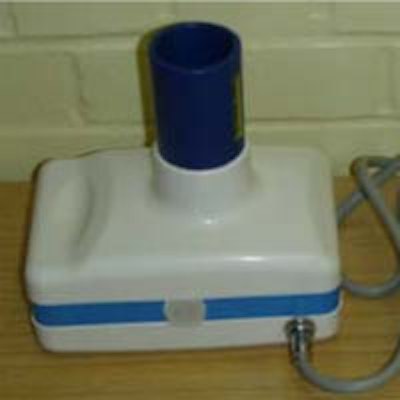
Handheld x-ray devices are used widely in dental practices across the U.S., but are they always safe?
That depends on the device, according to a new study in the Journal of the American Dental Association (November 2014, Vol. 145:11, pp. 1130-1132). The study authors warn dental professionals to be cautious and use only those devices that have been cleared by the U.S. Food and Drug Administration (FDA).
Handheld x-ray devices facilitate imaging when patients are sedated or anesthetized in the operating room or for intraoperative implant placement, they noted. However, they stated that since the introduction of these devices, an influx of inexpensive options have emerged that sometime lack the necessary safety measures. These devices fail to meet FDA standards but are advertised actively and sold online in the U.S.
The study authors, five of whom are oral and maxillofacial radiology residents in the department of oral health and diagnostic sciences at the University of Connecticut School of Dental Medicine, were alerted to this problem during an oral and maxillofacial radiology literature review class where they reviewed a report from the Health Protection Agency (HPA) Radiation Protection Group in Europe, entitled "Tianjie Dental 'Falcon' hand held X-ray set imported from China: Summary of HPA radiation protection assessment results."
U.K. health experts found that the imported machines exposed users and patients to 10 times the normal level of radiation. Thirteen of the Tianjie Dental Falcon devices (sold via the Internet by Zhengzhou Tianjie Electronic Equipment for as little as 200 pounds or $380, compared with around 4,000 pounds or $6,400 for standard handheld x-ray devices) were seized. Emergency testing revealed that they had insufficient lead shielding inside them to protect dentists and patients from excessive radiation.
"We noted that handheld x-ray machines that looked identical to the Falcon were relentlessly advertised on USA Discount Dental (an online discount dental equipment/supply site), eBay, and Amazon at prices far below the FDA-cleared Nomad, made in the USA by Aribex," study authors Mina Mahdian, DDS, and Alan Lurie, DDS, PhD, told DrBicuspid.com. Dr. Lurie is a professor, the chair of the division of oral and maxillofacial diagnostic sciences, and the chair of the section of oral and maxillofacial radiology at the UConn School of Dental Medicine.
"All of the oral and maxillofacial radiology residents were quite upset with the overtly unsafe, even dangerous, performance of the Chinese machine," they wrote.
They then decided to do a literature review to steer dentists away from buying these potentially dangerous machines.
“If you want to do handheld intraoral imaging, use an FDA-cleared handheld x-ray machine”
"We felt that the best way to inform dentists of the danger associated with these machines was to compare their performance with that of the FDA-cleared Nomad," they said.
The Nomad Pro has multiple labels clearly listing the field-of-view, focal spot size, filtration, and voltage, as well as multiple references to manufacturing regulations.
Radiation studies conducted by Aribex have found that in a "worst-case" situation -- taking 60 exposures per hour at a maximum exposure of 0.99 seconds each -- an operator has the potential to receive 3.6 mR/hr leakage at the hand. The maximum allowable radiation leakage, per FDA regulations, is 100 mR/hr.
After ascertaining that all of the differently named Chinese handheld x-ray machines were essentially the same machine -- and were not FDA-cleared (although they were advertised as FDA-approved), the authors used data from the HPA study and compared leakage, exposure parameters, safety "dead-man" switches, operator exposure, and patient effective doses.
"Patient and operator radiation doses were very high, there was inadequate operator shielding, inadequate collimation, no dead-man switch, long exposure times of at least two seconds to acquire an image, all of which are radiation hazards to patients and operators and would produce substandard or diagnostically useless images," the study authors told Dr. Bicuspid.com. "The differences in performance and safety between the Chinese machines and the Nomad were staggeringly huge. ... This handheld instrument was clearly a step backward of approximately 100 years."
Dental health professionals need to take responsibility for the safety of their devices, since the regulation of this equipment varies from state to state, and there is no strict supervision regarding every device that is imported into the U.S., the authors noted.
In 2012, the FDA released a warning for dental and veterinary professionals not to purchase or use certain potentially unsafe handheld dental x-ray units. The agency was concerned that these devices could expose the user and the patient to unnecessary and potentially harmful x-rays. The units, sold online by manufacturers outside the U.S. and directly shipped to U.S. customers, had not been reviewed by the FDA and did not meet FDA radiation safety requirements.
The Washington State Department of Health alerted the FDA after tests on a device purchased online revealed it did not comply with x-ray performance standards. The FDA stated that units cleared by the agency bear a permanent certification label/tag, a warning label, and an identification label/tag.
"Healthcare professionals using these devices should verify they are purchasing and using those that have been reviewed and tested to meet FDA's standards," said Steve Silverman, director of the Office of Compliance in the FDA's Center for Devices and Radiological Health.
Despite numerous reports about safety issues associated with devices not cleared by the FDA, they still are available for purchase at low prices from several online retailers, the study authors noted.
Given the lower price compared with that of FDA-cleared devices, ill-informed dental care providers might purchase a device not FDA-cleared, unaware that they are putting themselves, their staff members, and their patients at great risk, they added.
Do not buy these handheld machines, Drs. Mahdian and Lurie warned, and if you have one, discard it.
"If you want to do handheld intraoral imaging, use a Nomad or other truly FDA-cleared handheld x-ray machine," they said. "Your imaging will vastly improve, and your staff and patients will not be needlessly exposed to significant excess amounts of x-radiation."
They concluded that the biggest help would be if eBay, Amazon, and USA Discount Dental, totally ceased to advertise these x-ray machines.
